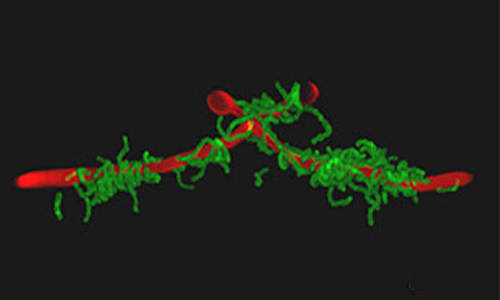New research has found novel factors that affect the ability of fungi to be incorporated into microbial communities within the human body and thus new ways by which fungal infections could be better controlled.
Bacteria interacting with fungus
The study, led by Professor Howard Jenkinson and Dr Angela Nobbs in the Oral Microbiology Research Group from the University of Bristol’s School of Oral and Dental Sciences, is published in the open access journal mBio.
In the human mouth microorganisms form communities known as biofilms, which can stick to teeth, gums, tongue and dentures, and where the fungus Candida albicans can be found.
The research group focused on the process by which C. albicans becomes integrated into these communities containing bacteria, such as Streptococcus, as this is often the first step in the development of Candida infections.
The study found that impairment of early stage addition of mannose sugars to C. albicans hyphal filament proteins has a harmful effect on the ability of C. albicans to integrate into polymicrobial biofilms.
Howard Jenkinson, Professor of Oral Microbiology in the School of Oral & Dental Sciences, said: “Candida albicans is becoming an increasingly serious problem in hospital infections. The fungus is responsible for almost 90 per cent of human fungal infections and is now the third most common infection to be acquired in hospitals.”
Story Source:
The above story is based on materials provided by University of Bristol.





